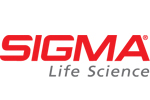08:00 | Registration |
|
Pharmacogenomics and Drug Safety | Session Sponsors |
| |
09:00 |  | Keynote Presentation New Developments in Pharmacogenomics and Drug Safety
Magnus Ingelman Sundberg, Professor/Head, Karolinska Institutet, Sweden
The lecture will give an update in the field of current and future pharmacogenomic biomarkers of importance for prediction of drug metabolism, drug action and adverse drug reactions focusing on the most clinically relevant examples. |
|
09:30 | Safety Pharmacogenomics
Urs Meyer, Emeritus Professor, Biozentrum/University of Basel, Switzerland
This lecture will give an update on the presently required mandatory pre-prescription tests for safety biomarkers and their clinical application and also discuss the recommended non-mandatory tests or still disputed applications of safety pharmacogenomics. |
10:00 |  | Keynote Presentation The Role of In Vivo Transgenic Approaches in the Development of Safer Drugs
Roland Wolf, Director, University of Dundee, United Kingdom
The dramatic advances in molecular genetics are now enabling the creation of transgenic models which much more closely resemble pathways of drug metabolism and chemical toxicity in man. Of particular relevance is the ability to assess the consequences of genetic polymorphism, human-specific metabolites and drug:drug interactions. |
|
10:30 | Coffee Break and Networking in the Exhibition Hall |
11:15 | The Role of Defence and Adaptation in Drug-Mediated Liver Toxicity
Christopher Goldring, Senior Lecturer, University of Liverpool, United Kingdom
Chemical stress is a potentially deleterious state induced by exposure of cells to non-physiological levels of chemically reactive species (CRS) and it can play a role in off-target adverse drug reactions (ADRs). Whilst we are beginning to understand some of the key events that influence how the liver adapts to exposure to chemicals, we are still some distance from understanding how this actually pertains to Man. This talk will review the field and highlight key recent developments and the most significant challenges to our understanding as to whether defence and adaptation influences individual susceptibility. |
11:45 | Rationalising Reactive Toxicity: From Chemistry to Adverse Effects
Mark Cronin, Professor, Liverpool John Moores University, United Kingdom
Many drug toxicities are brought about through reactive metabolites. The chemistry associated with reactivity will be described and will allow for the prediction of adverse effects and systemic toxicity. |
12:15 |  Technology Spotlight: Technology Spotlight:
ADME Studies in Knockout Rats Lacking Key Drug Transporters
Heike Lehrmann, Tactical Marketing Manager, Sigma Aldrich
|
12:30 | Lunch |
13:30 | Poster Viewing Session |
|
Genotoxicity and Toxicokinetic Modeling |
| |
14:15 | When is a Genotoxin not a Genotoxin?
Richard Walmsley, Professor, University of Manchester, United Kingdom
The in vitro genotoxicity tests were conceived to predict carcinogenicity in novel chemicals. However a reproducibly positive in vitro genotoxicity test result does not necessarily imply a human cancer hazard. This talk explores how chemicals can be saved. |
14:45 | A Pharma-Wide Approach to Predicting the Genotoxic Properties of Aromatic Amines
Michael Kranz, Computational Chemist, GlaxoSmithKline, United Kingdom
In this talk, the reliability of the Ames test for AA’s, the outcome from a pharmacy-wide data-sharing consortium for building block-sized AA’s and a new predictive model will be presented. |
15:15 | Coffee Break and Networking in the Exhibition Hall |
16:00 | Biotransformation: Still a Bottleneck for In Vitro Kinetic and Dynamic Approaches?
Sandra Coecke, Laboratory Leader, Joint Research Center, Germany
Essential input parameters for physiologically-based toxicokinetic and toxicodynamic modelling rely on the availability of reliable and relevant human metabolic competent sources, modelling the process of xenobiotic biotransformation. |
16:30 | In Silico Predictive Toxicology: Where are we at and Where are we Going?
John Dearden, Professor, Liverpool John Moores University, United Kingdom
In silico toxicology has made great strides in recent years, and both the range of endpoints and the accuracy of predictions have improved. There is, however, still much room for improvement. Mechanistic and toxicokinetic approaches are now being used that are allowing better predictions to be made. |
17:00 | Drinks Reception |







